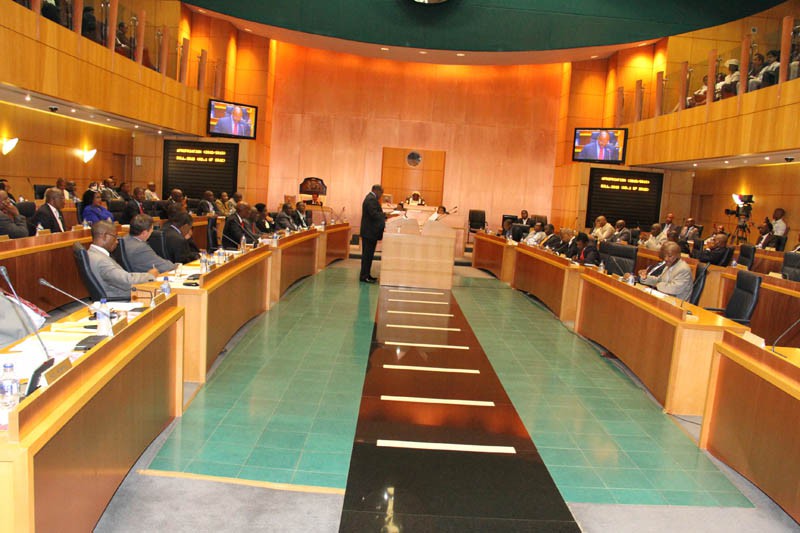In Monday's parliamentary questions and answers
| Tuesday July 28, 2015 15:59


Question: Ignatius Moswaane,
(Francistown West)
Asked the Minister of Transport and Communications if he is aware that his Ministry is reluctant to implement Government directives and when the revenue collector with relevant qualifications will be paid the scarce skills allowance as per Savingram Ref: DP 19/96/3 III (32) dated 31st March 2014.
Response: The ministry is not in any way reluctant to implement Government directives, as they are mandatory by nature. The savingram referred to granted authority for officers holding Diploma in Accounting qualifications and employed in accounting positions to earn the scarce skills allowance in ministries and Government departments or agencies as listed. The Ministry of Transport and Communications is currently not included in the list. Therefore, the revenue collectors are not eligible to be paid scarce skills in line with the stated DPSM Savingram.
That notwithstanding, my ministry was aware that DPSM is working on the holistic review of scarce skills allowance and will await the completion of the exercise thereof.
Question: Polson Majaga, (Nata/Gweta)
Asked the Minister of Presidential Affairs and Public Administration to state the total cost of Scarce Skills Allowance annually, to state the justification for this arrangement and associated challenges and to provide a list of skills and professions enjoying this benefit.
Response: The annual cost of paying the scarce skills allowance is five hundred and thirty million, eight hundred and eighty-nine thousand and five hundred and fifty three pula (P 530,889,553.)
The scarce skills allowance was introduced in 2008 to enable Government to attract and retain expertise deemed to be scarce.
This was a product of the recommendations of a study undertaken by the Botswana Institute For Policy Development and Analysis (BIDPA) in 2007. Eligible employees are made to sign an undertaking that allows Government to terminate the allowance whenever the skill is no longer scarce.
The cost factor was a major implementation challenge that the Government has to contend with. This was derived from the fact that the allowance rate is high, ranging between 15 to 40 percent. Overall 42 occupations have been categorised as being scarce.
Question: Setlhomo Lelatisitswe, (Boteti East)
Asked the Minister of Education and Skills Development to state the estimated cost of sponsorship for students of the Pharmacy programme per year, in which country these students are trained, how many of these students graduated in the past five years, how many did not come back to work in Botswana and whether it would not be cheaper to start the Pharmacy Programme at the University of Botswana School of Medicine; if so, what delayed the establishment of this programme and at what stage it is currently.
Response: The cost of training in Pharmacy varies from country to country. The following are the annual average costs per student in the countries where we train Pharmacy students:
Botswana (Institute of Health Sciences) - P21,600
Botswana (Boitekanelo College)- P57,480
South Africa- P73,500
United Kingdom- P392,000
Czech Republic- P265,000
Pharmacy students are trained in Botswana, South Africa, United Kingdom, and Czech Republic. Our records show that 241 students graduated in Pharmacy in the last five years (166 with Diploma and 75 with Degrees). Ministry was unable to ascertain the number of graduates who have not returned home.
This is because upon completion of their studies, my ministry repatriates the students back home. Some of these students upon returning home find their way back overseas.
The process of repatriation is facilitated by provision of allowances and thus some may take the repatriation allowance and disappear. Most of the countries where these non-returnees are have a confidentiality clause, which does not allow access of information to a third party.
Establishing a School of Pharmacy at the University of Botswana would not necessarily translate to a cheaper programme.
The unit cost for health related programmes is generally very high given the specialised nature of set up required for infrastructure and human capital.
The prospect of establishing the Pharmacy Programme is however under consideration and due process will follow once approval by the University of Botswana Senate has been granted.
